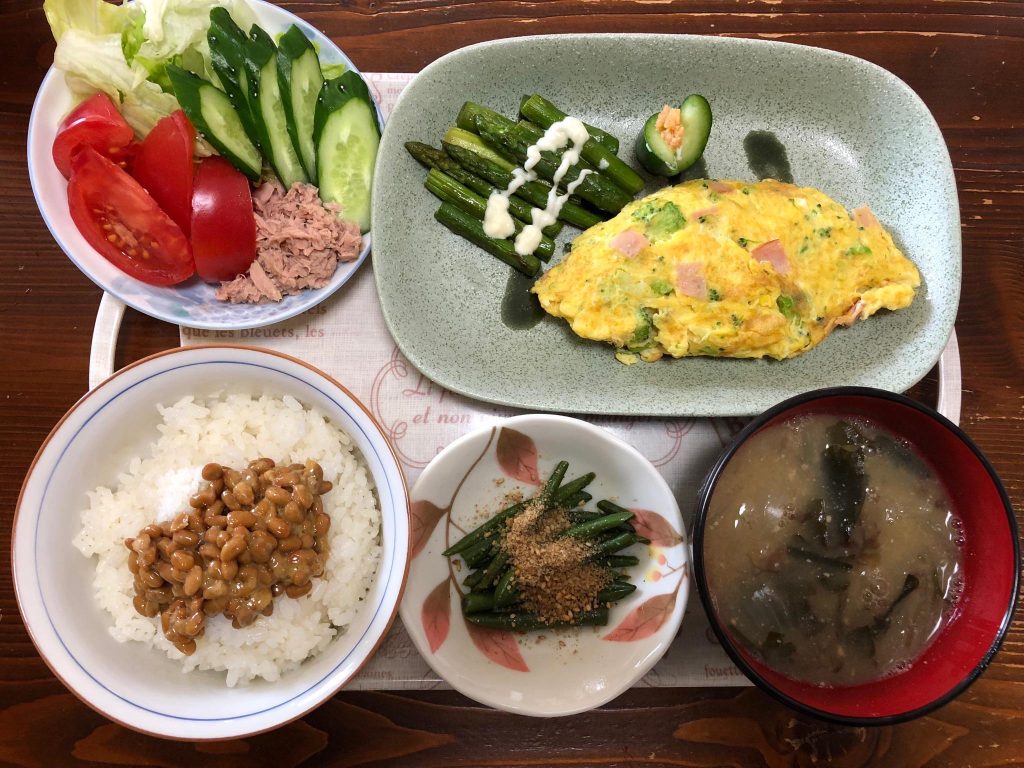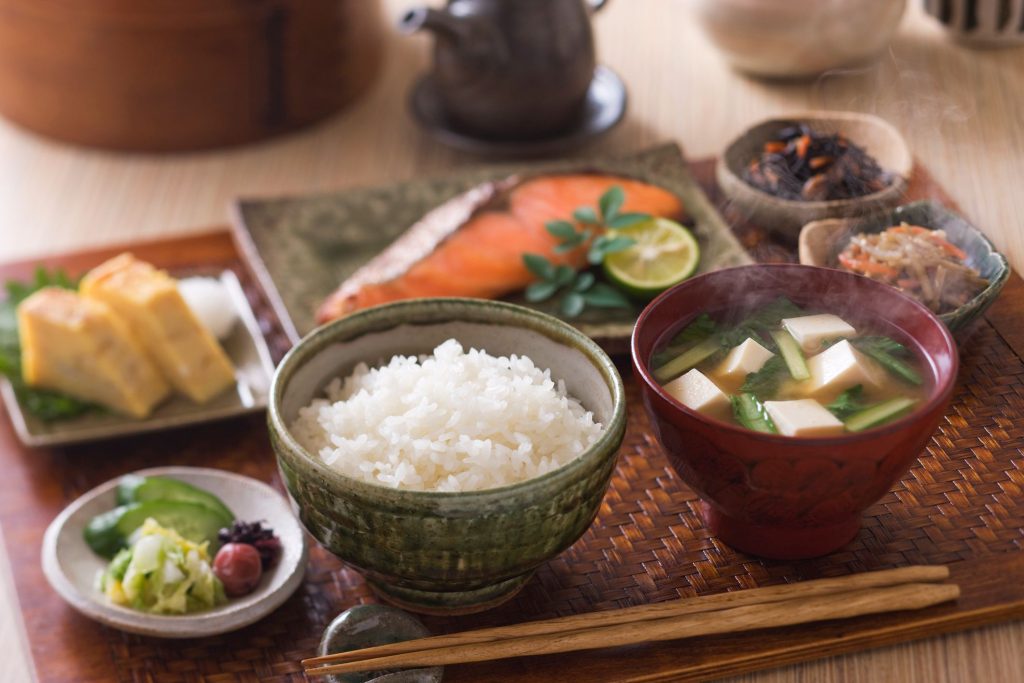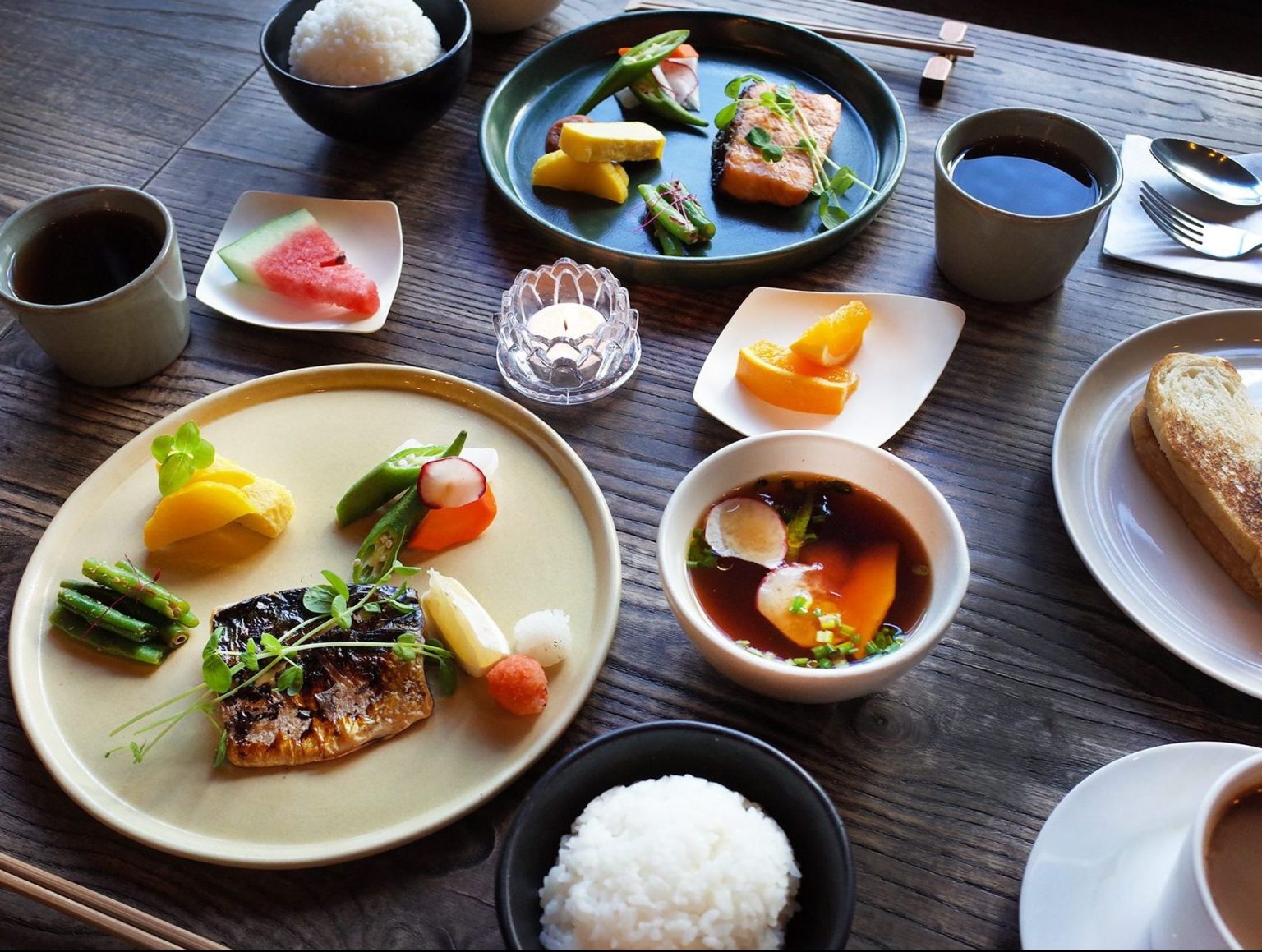Japanese breakfast foods are unique in the world of culinary diversity, distinguished not only by their exquisite flavors and textures but also by their focus on balance and health. Stemming from centuries-old customs and informed by the principles of Japanese cooking, a traditional Japanese breakfast presents an abundance of wholesome choices that satisfy the appetite and promote overall health. Let’s explore the world of Japanese breakfast cuisine and find the healthful treats that lie ahead, from substantial rice bowls to delicate fish preparations.

The Key Ingredients of Japanese Breakfast Food
Breakfast is considered the most significant meal of the day in Japan, as it sets the stage for energy and nutrients. Breakfast in Japan is defined by its simplicity, freshness, and nutritional value—a stark contrast to the Western concept, which frequently consists of heavy and fatty fare. Incorporating a range of dietary groups, such as grains, protein, vegetables, and fermented foods, all carefully prepared to offer a pleasing balance of flavors and nutrients, is the main focus of a typical Japanese breakfast foods.
The staple of the breakfast table is rice.
Rice, a fundamental meal that serves as the basis of Japanese cuisine, is the focal point of a Japanese breakfast foods. Rice offers nutrition and energy to start the day on a healthy note, whether it is served steamed or in the shape of rice porridge, or “okay”. Japanese rice is a healthy option for breakfast because of its sticky texture, delicate sweetness, and abundance of vital nutrients and carbohydrates.
Miso Soup: A Rich Source of Nutrients
A steaming bowl of miso soup, a flavorful broth prepared from fermented soybean paste, dashi (a stock produced from dried bonito flakes and seaweed), a variety of vegetables, and tofu are staples of any Japanese breakfast foods. Miso soup is a nutritious supplement to the morning meal because it’s not only tasty and warm but also full of bacteria, vitamins, and minerals. Its warming qualities aid in energizing the body and stimulating the senses, while its probiotic content supports gut health and facilitates digestion.
Fish That’s Grilled: A Lean Protein Source
In Japanese cooking, fish is frequently the main ingredient in meals served for morning. A popular option for breakfast is grilled fish, such as mackerel (Saba) or salmon (sake), which offers a lean dose of protein, omega-3 fatty acids, and other elements. The delicate grilling method releases the inherent flavors and textures of the fish and adds a Smokey scent, making this a tasty and nutritious breakfast choice.
Explore More: Feast Hoard: A Tour to Food Festivals Around the Globe
Pickled Vegetables: A Flavor and Nutrient Explosion
Pickled veggies, also known as “tsukemono,” are a common side dish for Japanese breakfasts foods and provide a tangy taste along with some health advantages. These fermented treats, which range from spicy radish pickles to crunchy cucumber pickles, are full of probiotics, vitamins, and antioxidants that help with digestion, strengthen the immune system, and enhance general wellbeing. Their vivid hues and strong flavors give the breakfast spread more nuance and complexity while achieving a pleasing harmony between textures and tastes.
The Superfood Natta Has Special Qualities
Natta, a traditional Japanese dish made from fermented soybeans, is a nutritional and flavor powerhouse for the daring palate. Natta is valued for its health advantages, which include a high protein content, probiotic qualities, and an abundance of vitamins and minerals, despite its potent scent and unique flavor. Regularly eaten as part of a Japanese breakfast foods, nettop is a great complement to a balanced diet because it is thought to assist digestion, boost immunity, and promote cardiovascular health.

In summary, Japanese breakfast foods
To sum up, Japanese breakfast foods respect the discipline of cooking and the pursuit of wellbeing with a mouthwatering variety of flavors, textures, and nutrients. From filling mainstays like rice and miso soup to delectable specialties like grilled fish and pickled vegetables, every meal showcases Japan’s diverse cultural background and culinary customs. Japanese morning dishes are a great example of healthful and wholesome cuisine because they place a strong emphasis on freshness, balance, and harmony. They also nourish the body and soul in addition to tantalizing the taste buds. The next time you have a Japanese breakfast foods, make sure to savor every bite and experience the symphony of flavor and nutrition that is served up—a celebration of health and vigor as well as a wonderful feast for the senses.








